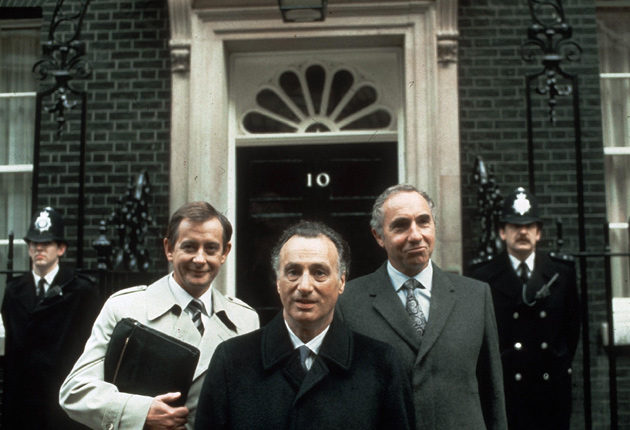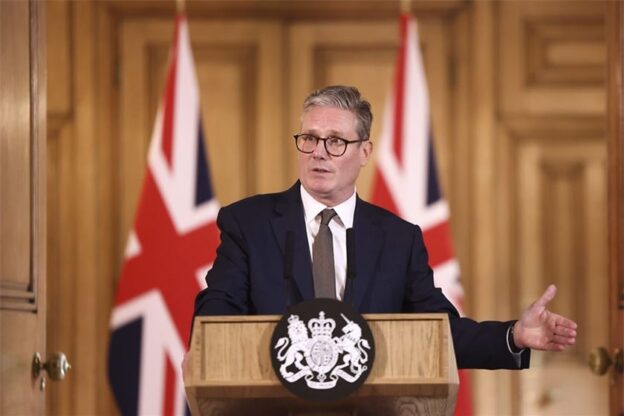By Adel Darwish
Donald Trump is a man who prefers the theatre of grand deals, and his latest performance was no exception. Flanked by Benjamin Netanyahu at the White House, the former president rolled out a 20-point plan for Gaza that aspires to achieve nothing less than a ceasefire, the release of hostages, the end of Hamas rule, and the reconstruction of the shattered strip. To lend the proposal gravitas, Trump announced that he would personally chair a “Board of Peace” and that Tony Blair would serve as one of its international members. It is a formula that combines Trump’s flair for control with Blair’s reputation as an experienced fixer of intractable conflicts. Yet for all its boldness, the plan is fraught with contradictions that will test both men’s skills—and the patience of the region.
The merits of the proposal are clear enough. It offers a path out of stalemate: an immediate ceasefire, swift release of hostages, and a framework for reconstruction funded largely by Gulf monarchies eager to stabilise their neighbourhood. It speaks to weary Israelis who long for respite, to Palestinians desperate for aid, and to Western allies who demand visible progress. The inclusion of a technocratic Palestinian committee to manage daily life is an attempt to sidestep factional politics while promising the eventual return of a reformed Palestinian Authority. The deployment of an international stabilisation force, though undefined in composition, is designed to assure both sides that Gaza will not collapse into anarchy the moment guns fall silent.
There is also a method in appointing Blair. For two decades, he has cultivated relationships with Gulf rulers, Israelis, and Americans, even while being despised by many on the Arab street for his role in the 2003 controversial Iraq war. He understands the language of power, the mechanics of reconstruction, and the rhythms of diplomacy. His presence may reassure donors that their billions will not vanish into the sinkhole of corruption that has long plagued Palestinian governance. For Netanyahu, it offers a credible envoy who is not hostile to Israeli concerns; for Trump, it provides a seasoned partner who can shoulder the technical burdens of implementation.
But the liabilities are glaring. Trump’s decision to chair the Board of Peace is vintage showmanship but risks reducing diplomacy to a campaign prop. Critics will suspect that deadlines are timed to his own political calendar, and allies may hesitate to invest in a scheme so tied to one man’s fortunes. Blair’s involvement, meanwhile, revives bitter memories among Palestinians of Western intervention cloaked in paternalism. Extremist factions will seize on his role to argue that the plan is colonialism by another name. The Palestinian Authority, supposedly reformed and waiting in the wings, may find itself delegitimised before it even returns.
The practical hurdles are formidable. Disarming Hamas is easier to decree than to execute. The composition of the international security force is unresolved—will it be a UN-mandated mission, a coalition of Arab League states, or a patchwork of volunteers? Each option carries its own diplomatic baggage. The promise of Gulf funding is real, but conditional; Riyadh, Abu Dhabi, and Doha will expect political concessions in return. Even the ceasefire itself could collapse under the weight of spoilers, from rockets fired by splinter groups to provocations by Iran’s regional proxies. The clause that gives Israel carte blanche to resume military action if terms are breached may reassure Israelis but could also unravel the fragile truce at the first test.
Still, there is a deeper truth in the plan’s logic. Perfect mediators do not exist. Diplomacy is often carried out by flawed men with baggage, and by structures that are improvised and imperfect. Blair’s reputation in the Middle East is chequered, yet his access and experience remain rare commodities. Trump’s methods are brash and self-serving, yet his willingness to act boldly contrasts with the incrementalism that has too often paralysed others. If the alternative is endless war and Gaza’s continued descent into misery, then even a risky, personality-driven plan deserves consideration.
History will not indulge excuses if this opportunity is squandered. The hostages cannot wait, Gaza cannot rebuild itself, and Israel cannot forever live under fire. Whether this initiative proves to be a serious roadmap or another exercise in theatrics will depend less on its authors’ egos than on the willingness of regional actors to seize it. For now, the world can only watch as Trump and Blair, improbable partners, attempt to wrest order from chaos.


